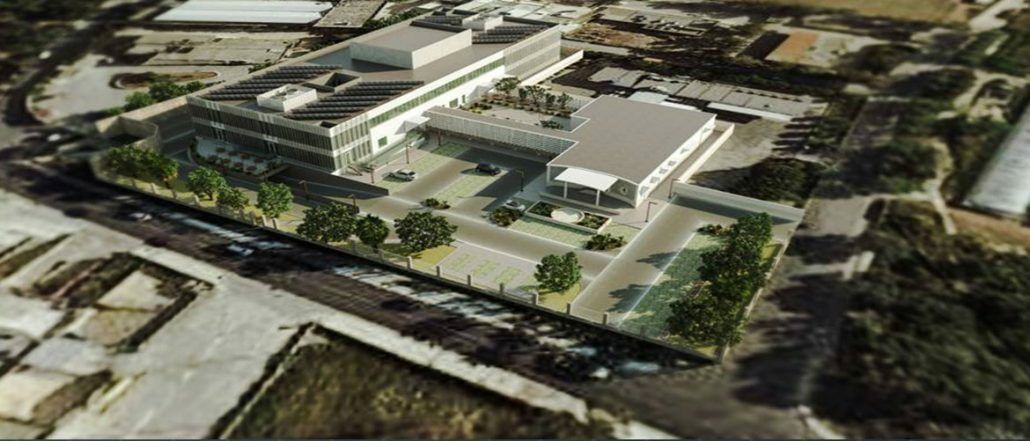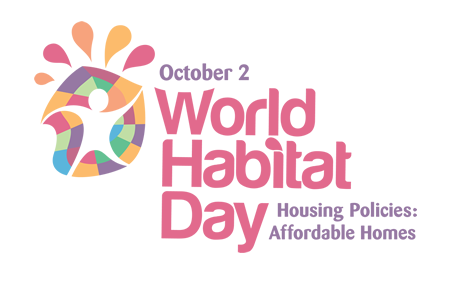nZEB European community launched
The ABRA Community is a European network of stakeholders that believe in investing in building renovation through AdoRES (new Additions and Renewable Energy Sources) to achieve and finance a nearly zero energy buildings (nZEB) and creating synergies between old and new, while raising the architectural quality. The network was created within the framework of the EU funded Horizon 2020 ABRACADABRA project that ACE is a partner in (find more information here).
It includes a variety of actors such as: housing cooperatives, policy-makers and public sector, architects, construction companies, ESCOs, property owners, building managers, research and financial institutions as well as other building practitioners etc.
Being part of the community allows you to be updated on project achievements, get access to the free project toolkits to test them in your project, learn about case study buildings and be part of a paradigm change in building renovation towards nZEB and much more.
As a member of ACE, the Kamra tal-Periti supports this project.
St Benedict College call for periti to host students in ‘Career Exposure Experience’
St Benedict College (Kirkop) has issued a call for periti to host secondary school students in their “Career Exposure Experience” programme.
Mr Natalino Mallia, Principal Education Support Officer, stated that “In the past eight scholastic years, St Benedict College organised the ‘Career Exposure Experience’ for boys and girls in Form 4. Every year, the outcomes are extremely positive and encouraging. Over 1600 students had participated in this work experience. This project is of particular benefit to each and every student’s career development. For this reason, St Benedict’s College is taking the initiative to re-organise this unique opportunity to all students boys and girls in Form 4.”
The project will be organised spread over two weeks:
- Week 1 : 20th to 24th November 2017
- Week 2 : 4th to 7th December 2017
Throughout the scholastic year, St Benedict College is involved in the organisation of a range of career exercises, educational fairs, vocational activities and career orientation visits related to ‘Career Information’ for students from Form 1 to Form 5.
During the ‘Career Exposure Experience’ the students are:
- introduced to the world of work. They will acquire knowledge of the job market and career opportunities in different sectors.
- expected to abide to the rules and responsibilities at the work place such as punctuality at work, working with a group of people and accountability;
- exposed to new career paths which is very important when making choices for their future career;
- not paid for any services/work carried out during the work experience;
Mallia advised that “It is highly recommended that the work experience will be carried out during school hours which is between 08:15 – 14:00 (the hours can be adjust according to necessities). The number of placements offered to students is left at your discretion.”
“On behalf of the St Benedict College, I would also like to propose that a ‘Career Exposure Experience Agreement Form’ which is signed by the Head of School will be signed by a representative acting on your behalf and who will be responsible for the students during this experience. Staff at college and school level will be visiting students during the one week in order to mentor and support them.
“I am confident that this experience will also be of benefit to the business community in that employers will find a better prepared workforce in the future. On behalf of my college, I would like to thank you in advance for your sincere collaboration and support for providing our students the opportunity to experience life at the place of work.”
For further information please contact Ms Graziana Cauchi on graziana.cauchi@ilearn.edu.mt or 25984019 / 25984016 / 25984026 .
The Kamra tal-Periti supports this initiative and encourages its members to provide the opportunity to the students to gain insight into the profession and hopefully become the architects and civil engineers of the future.
Courts Registrar issues new call for Experts for 2018
The Registrar of the Courts of Justice of Malta has issued a call for Court Experts in terms of Art. 89 of Chapter 12 of the Laws of Malta.
The Kamra tal-Periti is hereby notifying all interested members of the profession to submit their nomination for 2018 through the registration form below.
Deadline for the submission of nominations was 23rd October, 2017.
Huntingford building integrated in proposed Xewkija Business Hub
The Planning Board has approved a planning application for the development of a business hub in Xewkija on the site formerly occupied by the Milk Marketing Union (MMU). The approved development includes the integration of Huntingford’s buildings within the new development. The Kamra tal-Periti had campaigned strongly for the protection of this modernist building during the public consultation process.
Earlier this year, the Planning Authority had announced the scheduling of the building at Grade 2 level.

Photo Credit: Planning Authority
Kamra tal-Periti celebrates World Architecture Day, World Habitat Day and European Engineers Day
World Architecture Day is celebrated on the first Monday of October each year. The theme chosen by the International Union of Architects for this year is “Climate Change Action!” The threat of climate change is real. Rapid urbanisation and building developments are increasing our fuel energy consumption and greenhouse gas emissions. Architects have an important role to play in combating the impact of climate change on the environment and humanity, and are called to mobilise efforts to respond to the initiatives of the 2015 Paris Climate Change Agreement.
The United Nations has designated the first Monday of October as World Habitat Day, and this year’s theme is “Housing Policies: Affordable Homes”. A worldwide analysis of accommodation affordability over the last 20 years reveals that despite increasing demand, residential properties for sale and for rent have been largely unaffordable for the majority of the world population. Ensuring affordability of residential accommodation is a complex issue of strategic importance for development, social peace and equality. Promoting sound housing policies is also crucial for climate change, resilience, mobility and energy consumption.
European Engineers Day will be commemorated on the 5th October, and will focus on the theme “Concerns about Engineering Excellence”. The impact of engineers is visible in every aspect of human life, and engineers have the ability to enhance and change society. Many of the challenges faced by society today depend on the availability of excellent engineering solutions, and thus engineers are called to acknowledge this role and to deliver their services and innovative solutions with excellence.
All three commemorations have two common threads: the need for architects and engineers to recognise their particular role in society and the influence they have on combating some of the world’s most difficult problems, and the need for quality housing, affordable housing and engineered solutions that improve people’s quality of life and combat climate change.
In order to commemorate these three important dates, the Council of the Kamra tal-Periti, in collaboration with the Society of Architecture and Civil Engineering Students (SACES) will be launching Awards for the graduates of the Faculty for the Built Environment. This is the first time that these Awards are being held, and judging of final year projects and dissertations will take place this week. The students’ work will be exhibited to the public during Notte Bianca on the 7th October through to the 15th October, at the University of Malta Valletta Campus. The winners will be announced during an Awards ceremony to be held in January 2018.
The Kamra tal-Periti is establishing this Awards scheme to celebrate good quality, sustainable, and ethical design in architecture and civil engineering, particularly at a time when the rush to build is not accompanied by sufficient thought and care about what we are leaving behind for future generations.
Thomas Vonier elected UIA President
American architect Thomas Vonier has been elected UIA President by the UIA General Assembly, which took place in Seoul, Korea, from 7 to 10 September 2017. Thomas Vonier will undertake the presidency of the International Union of Architects for the triennial period 2017-2020. He succeeds Malaysian architect Esa Mohamed.
Between 2011 and 2014, Thomas Vonier, has been Region III Vice-president and Secretary General from 2014 to 2017.
Thomas Vonier (FAIA, RIBA) is a Paris and Washington DC based architect and the founding president of AIA Continental Europe (1994-1995). He was the first president of the AIA International Region and he became president of the American Institute of Architects (AIA) in 2017.
“The UIA needs continuity of leadership, to innovate and TO improve. With your other elected leaders, I have led in restoring the UIA to its rightful place as an influential global force, while managing costs. Fees are down by half. We are having great impact. Our membership is growing. The world demands a strong voice, and that requires the closest professional bonds. My promise: elevate the global stature of architecture and engage world leaders. My purpose: unify our profession around the planet, influence world bodies through effective policies and great programmes, and advance architecture. The UIA is the only body of its kind, with a great past and a bright future. Architecture knows no boundaries. We are unified in our purpose: improve human conditions, everywhere, for everyone. As your president, I will provide knowledge, determination, and global leadership.”
2017-2020 UIA BUREAU
The UIA General Assembly also elected new Bureau members for the 2017 – 2020 triennial period:
- President: Thomas VONIER, USA
- Immediate Past President: Esa MOHAMED, Malaysia
- Secretary General: Serban TIGANAS, Romania
- Treasurer: Fabián LLISTERRI, Spain
- Vice-president Region I: Lorenz BRÄKER, Switzerland
- Vice-president Region II: Nikos FINTIKAKIS, Greece
- Vice-president Region III: Roberto SIMON, Brazil
- Vice-president Region IV: Jong RHUL HAHN, Korea
- Vice-president Region V: Mohamed MUNYANYA, Kenya
COPENHAGEN, 2023 UIA CONGRESS
The UIA General Assembly has elected Copenhagen (Denmark), as the host city of the 29th UIA Congress in 2023. The next congress will take place in Rio de Janeiro, in 2020 on the theme: “All Worlds. One World. Architecture in the 21st Century”.
Launch of the XII Din L-Art Ħelwa Architectural Heritage Award Scheme 2017
The XIII Din l-Art Ħelwa Architectural Heritage Award Scheme for 2017 is now open for entries. The Award Scheme is an initiative set up by the organisation to encourage architectural excellence in a Maltese context, the rehabilitation and reuse of old buildings, and the recognition of the dedicated work of those active in the field of restoration. The scheme is carried out with the support of the Kamra tal-Periti.
Eligible projects include the restoration or conservation of buildings, the adaptation of buildings to new uses, building additions or alterations, or new building projects in conservation areas. The projects can relate either to a single building, a complex of buildings, or to a historic urban environment or townscape. The project will be judged on the quality of the work executed, its historic, cultural, educational and social relevance, the preliminary research conducted and the aesthetic and visual merit. The project may be on a scale ranging from small to large, and should display a standard of work which would be outstanding in a Maltese context.
Submissions for the XIII Din l-Art Ħelwa Architectural Heritage Award Scheme should be for projects completed in the last year up to the 31 August, 2017. Submissions must be received at Din l-Art Ħelwa, 133 Melita Street, Valletta by Tuesday 31 October, 2017.
For further information please call 21 220358/21 225952 or email info@dinlarthelwa.org
Affiliations
The Kamra tal-Periti is affiliated with the Architects' Council of Europe (ACE), European Council of Civil Engineers (ECCE), Union International des Architects (UIA), Union of Mediterranean Architects (UMAR), Commonwealth Architects Association (CAA), and the Malta Federation of Professional Associations (MFPA).
Contact Us
Kamra tal-Periti
52, Triq San Pawl
Il-Belt Valletta VLT1212
Malta
+356 2131 4265
info@kamratalperiti.org
Office Opening Hours
Mon-Fri: 8:00am - 11:00am




You must be logged in to post a comment.